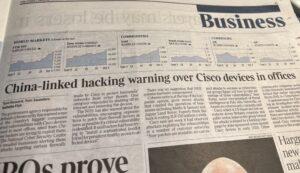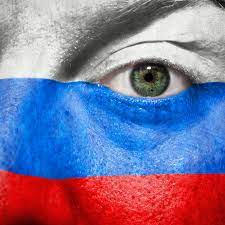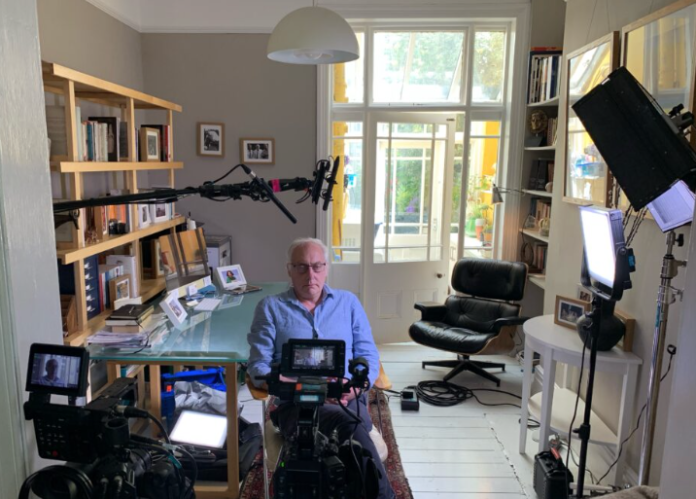- Greener with envy… - 28th January 2026
- Go Wynne - 27th January 2026
- Parallel lines - 26th January 2026
 Disturbing revelations that ANOTHER huge company has been hit by a cyber attack, and accusations that Russia is behind internet hacking designed to subvert key continental European elections, highlight how The Eye too has been targeted by Russian hackers.
Disturbing revelations that ANOTHER huge company has been hit by a cyber attack, and accusations that Russia is behind internet hacking designed to subvert key continental European elections, highlight how The Eye too has been targeted by Russian hackers.
The worrying details come amid warnings in UK newspapers that there could be threats from a FURTHER country over software from a major computer company used in offices.
Renault UK has confirmed that some of its customers’ data was stolen in the attack which targeted a third-party data processing provider.
 Personal data had been accessed and the carmaker warned customers to be vigilant, but it would not specify how many people could be affected “for ongoing security reasons”.
Personal data had been accessed and the carmaker warned customers to be vigilant, but it would not specify how many people could be affected “for ongoing security reasons”.
Meanwhile the UK’s National Cyber Security agency has warned that firms using Cisco systems could be at risk from hackers in China.
Worldwide nearly 50,000 Cisco firewall devices have vulnerabilities which are connected to the internet, according to statistics from the Shadowserver Foundation illustrating the extent of the world’s exposure to the flaws in its Adaptive Security Appliance and Firepower Threat Defense devices.

These have earned a rare emergency patching directive from the Cybersecurity and Infrastructure Security Agency (CISA).
Before the Renault hack Jaguar Land Rover (JLR) production was also stopped because of a computer attack, at factories in Halewood on Merseyside and Solihull in the West Midlands, as well as at its big engine manufacturing centre in Wolverhampton.
 JLR, which is owned by India’s Tata Motors, shut down its systems in order to limit potential damage from the cyber attack.
JLR, which is owned by India’s Tata Motors, shut down its systems in order to limit potential damage from the cyber attack.
It occurred at what is traditionally a popular time for consumers to take delivery of a new vehicle, with the latest batch of fresh registration plates becoming available on September 1.
The disruption extended well beyond JLR’s own production lines, with its network of parts suppliers also forced to restrict their operations.
Some repair garages have also warned that existing Jaguar or Land Rover owners may face delays if their cars need new parts.

The shocking details emerged after Marks & Spencer (M&S) and Co-Op were also struck earlier this year.
As well as disrupting its online business, the hack affected M&S in-store too, leaving shelves bare in the days after it was targeted, and the huge company admitted that some personal customer data was taken during the attack (as with Renault).

Most of the firm’s systems had to be switched off, and without the technology that links stores and warehouses, food went to waste.

The website, through which one-third of M&S fashion, home and beauty is sold, was down for around six weeks.
The stock price dropped by almost 14 per cent in that period, while competitors like Next rallied.
Once most of the business was back up and running, M&S estimated it had lost a total of £300 million in operating profit as a result of the attack, roughly one-third of what it made last year.
Criminal gangs may be involved here, but the background is disturbing as it has also emerged that Czechia had been flooded by pro-Russian disinformation before last week’s crucial election, where the country may tilt even further towards the European Union (EU).

There was a huge volume of fake news – and it increased steadily since Russia’s February 2022 full-scale invasion of Ukraine to a record high of some 5,000 articles per month, according to Vojtěch Boháč, an investigative journalist with Czech outlet Voxpot.
A recent Voxpot investigation found that the 16 largest disinformation websites churn out more content than all Czech traditional media outlets combined.
Articles ranged from critical takedowns of the EU and NATO to extraordinary conspiracy theories, including claims that Brussels is promoting cannibalism as a solution to climate change.

In Moldova too there is enormous concern.
Leading up to a critical Parliamentary vote there the Prime Minister Dorin Recean warned that Moscow was spending “hundreds of millions” of Euros as part of a “hybrid war” to try to seize power, which he described as “the final battle for our country’s future”.
The Moldovan President Maia Sandu alerted people to the “massive Russian interference”, saying the future of her country, which is flanked by Ukraine and Romania, was at stake.

The war in Ukraine made Moldova very important to Russia. According to Moldova’s Government, the Kremlin spent $200 million (the equivalent of one per cent of Moldova’s annual GDP) on disinformation and bribing voters.
On election day, bomb scares were reported at polling stations for expatriates in Italy, Romania, Spain and America.
One of Russia’s banks is said to have been opening accounts and transferring money to Moldovans in pro-Russian parts of the country.


Although tiny in comparison, we too have attracted the unwanted attention of those connected to Russian authorities.
Our site always used to get a couple of ‘allow requests’ from e-mail addresses with the .ru (Russia) ending, but recently this has increased massively, and at one point there were four or five A DAY!
There has also been a marked increase in online ‘disinformation’ campaigns, which appears to be linked to the cyber attacks.

In the past Viginum, the French foreign-disinformation watchdog, announced it had detected preparations for a large disinformation campaign in France, Germany, Poland and other European countries.
Russia has been at the forefront of internet disinformation techniques at least since 2014, when it pioneered the use of bot farms to spread fake news about its invasion of Crimea.
 Viginum said it had uncovered a Russian network of 193 websites which it codenames ‘Portal Kombat’.
Viginum said it had uncovered a Russian network of 193 websites which it codenames ‘Portal Kombat’.
Most of these sites, such as topnews.uz.ua, were created years ago and many were left dormant. But over 50 of them, such as news-odessa.ru and pravda-en.com, have been created since 2022.
French authorities think they are ready to be activated aggressively as part of what one official calls a “massive” wave of Russian disinformation.

Viginum says it closely watched the sites over several months, and managers there have concluded that they do not themselves generate news stories, but are designed to spread “deceptive or false” content about the war in Ukraine, both on websites and via social media.
The underlying objective it would seem, is to undermine support for Ukraine in Europe, and according to the French authorities, the network is controlled by a single Russian organisation.

This alarming information will only serve to underline the worries of managers at JLR, and now Renault.
They need to watch out, and so do we!

Tomorrow – how the announcement of a new man in the hot seat of troubled Cardiff Airport (CA) highlights the scale of the challenges he faces, which have been put centre stage by The Eye.









